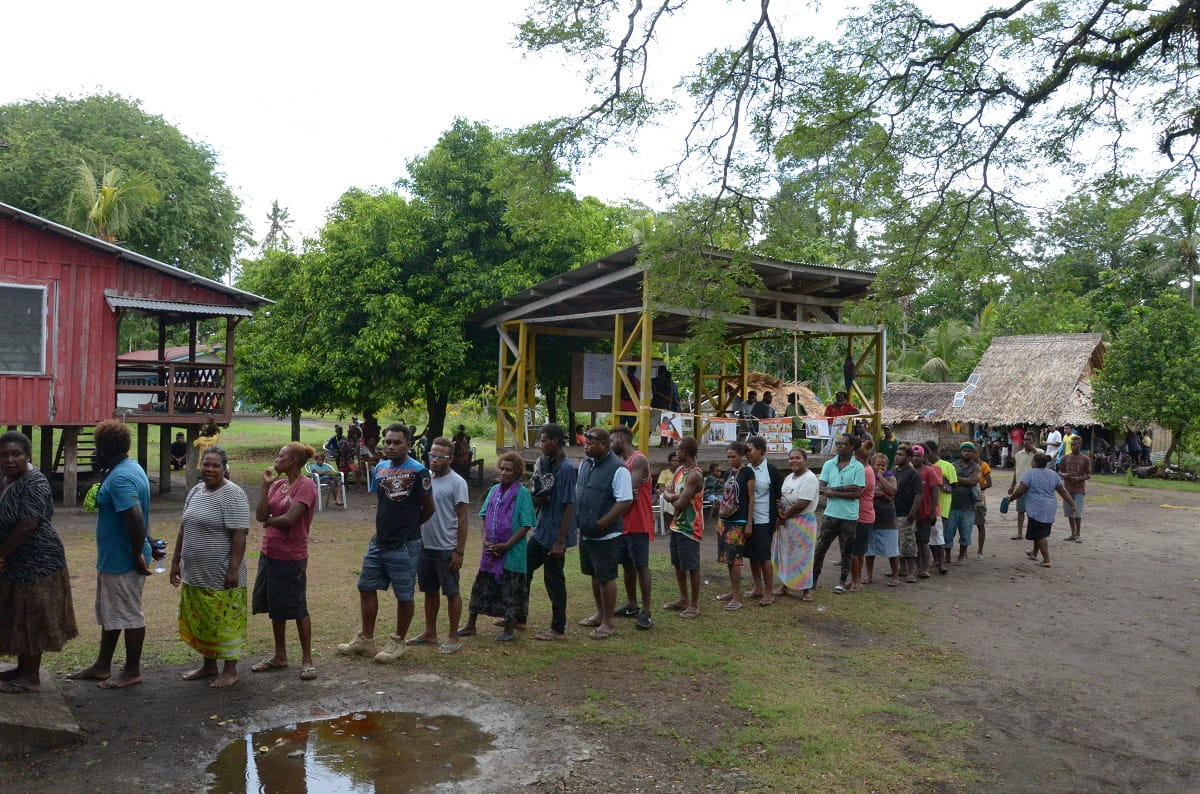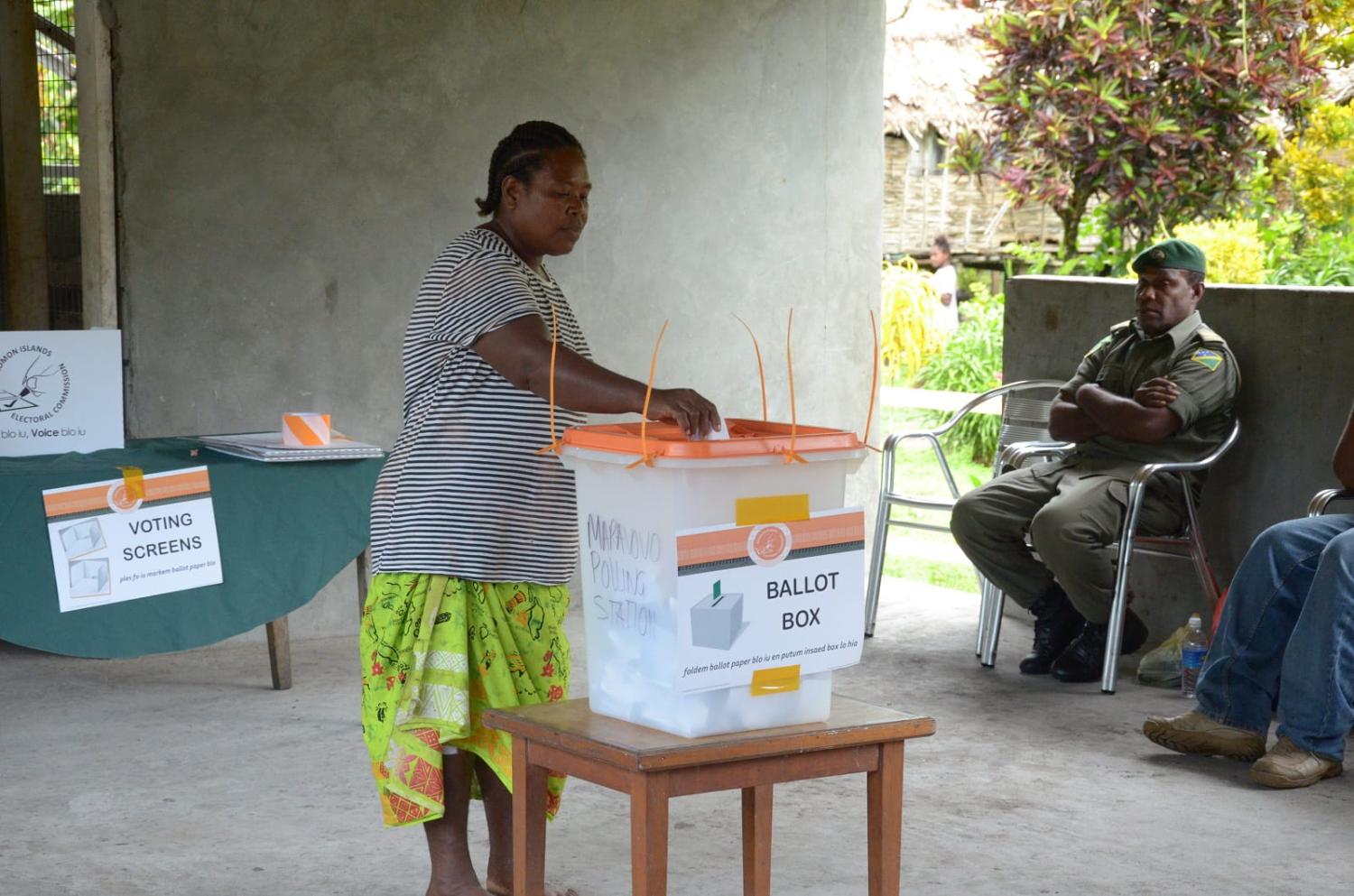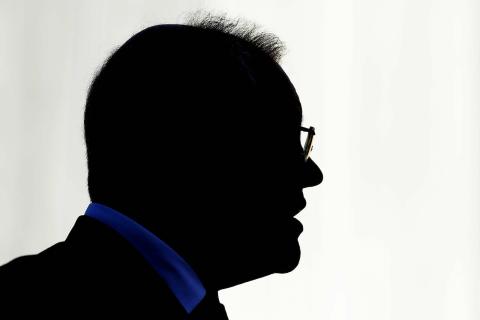With a week to go before voters take to the polls on 17 April, election campaigns in Solomon Islands are in full swing with 334 candidates vying for 50 seats (only 21 candidates are women, so they will be under-represented again). There’s a lot of speculation, as always, about who will win but less about why these elections matter for democracy.
Dr Tarcisius Kabutaulaka, a Solomon Islands expert, has referred to these elections as the “most important to Solomon Islands since independence”. Critical domestic issues at stake range from the poor state of the economy as inflation rates outpace GDP growth, to yawning gaps in health care, education and other social services, as well as allegations of government corruption.
There is also a looming question about whether the country’s democratic processes and institutions can “survive” the outcomes of the election given the shocks that have preceded it and the state of democracy in the country.
Since taking office, Prime Minister Manasseh Sogavare has reshaped internal and external politics, with some new directions leading to social unrest by those feeling excluded from decision-making. In 2019, Sogavare severed 36 years of relations with Taiwan in favour of China. Concerns were raised, but the government was unresponsive. In 2021, many took to the streets to protest not only the diplomatic switch but also centralised power, sweetheart resource extraction deals, and persistent poverty. The price tag of the rampage ran to more than AU$100 million — money the country does not have.
There are also growing rifts over power and resource-sharing between Honiara and the provinces. Malaita’s provincial leaders vowed to block Chinese activities in defiance of the diplomatic switch, but just 12 days out from elections, Chinese aid was being accepted — water tanks and solar lights win votes. Even so, provincial leaders still have concerns about whether the current democratic model is delivering. The elections won’t resolve these issues, but the next government needs to act more decisively on inclusive and accountable governance processes.

Local and national tensions will be more squarely on the agenda this election because, for the first time, national, provincial and Honiara City Council polls will occur concurrently. As noted by Dr Anouk Ride, Australian National University research fellow and long-time Honiara resident, this could be a boon for democracy with provincial-national political coalitions forming to advance policy agendas. But it could also just highlight the rifts and differences.
In Solomon Islands, elections are fought mainly on local issues and commitments. Candidates with deep pockets and wealthy backers are better able to win favour, and even buy votes. Incumbents are at an advantage this time round with MP slush funds, known as Constituency Development Funds, flowing almost exclusively to MPs who supported Sogavare’s government.
The two competing coalitions have enough candidates to make it possible for either to win. The DCGA coalition (incumbent government) and the CARE Coalition (opposition) are each fielding a candidate or more in most constituencies. Crunching the numbers, it appears Sogavare has the edge. But with 115 independents running and no way to lock in allegiances, election outcomes are unpredictable, not just at the ballot box but also for the selection of the next leader.
The evening before the election, “Devil’s Night”, is a time when vote-buying and other enticements are used to win support. And the wheeling and dealing goes on once MPs are elected and political camps vie for support. Money, ministerial promises, and hotel lock-ups are used to secure support for governing coalitions. Since independence, no incumbent prime minister has ever secured concurrent terms, but Solomon Islands serves up surprises regularly.
The risk that the public will become disillusioned with the election and democratic processes is real. If voters feel there is political foul play or external interference in democratic processes, unrest could follow. Recognising the risk, the Solomons International Assistance Force (SIAF) — deployed after the 2021 riots and comprised of personnel from Australia, New Zealand, Fiji and Papua New Guinea — will remain for the election period to help quell any trouble. But that is a security band-aid. Ultimately, bigger democratic issues will have to be addressed.
Under Sogavare’s leadership, and indeed before his time, cracks in the core pillars of democracy have widened. Governance is blighted by endemic corruption, media freedom has “narrowed”, and opportunities for youth — 70 per cent of the population — remain dangerously low. Promising measures such as the Anti-Corruption Act and Independent Commission Against Corruption have no bite. Resource projects are failing to deliver development dividends for all, but often deliver environmental costs. And safety is not guaranteed by an under-resourced police force.
These elections will help determine if democracy and stability in Solomon Islands can be enhanced, not eroded. That depends on more than who is prime minister. Most important is whether the next government focuses quickly on nation-building, development aspirations and accountable institutions to buttress democracy.
To learn more about the upcoming Solomon Islands election and the challenges ahead, listen to the Lowy Institute’s most recent Pacific Change Makers podcasts on Solomon Islands Elections: Democracy in the Balance and Solomon Islands: Security and Political Challenges with opposition leader Peter Kenilorea.


